Idea by
Iwo Borkowicz & Adam Siemaszkiewicz
JEJU.studio
Call for ideas 2021
Ulyankulu Pre- and Primary School
Ulyankulu Pre- and Primary School
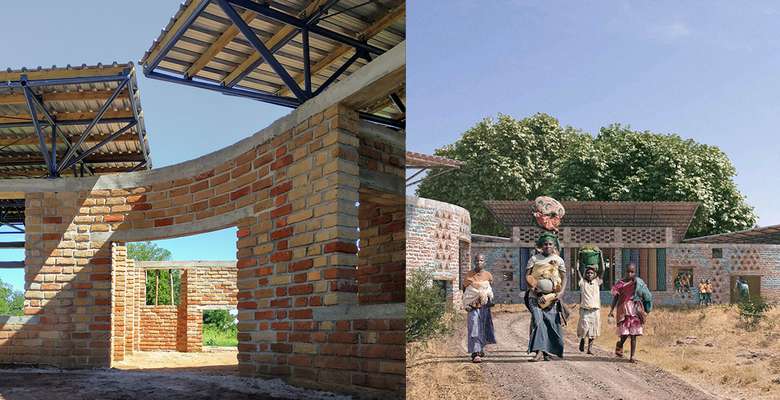
- Site-specific cases
Refugee society evolving in a tangible risk of being moved grows their roots shallow. This project alongside purely educational needs is trying to address a greater task that architecture can be a tool for - reassuring the local people of their belonging and foremost making them proud of living here.
We attempted to create an enclosure that is both generous and diverse, in order to inspire uses and interactions. The project serves as a shared space for both education and public events within the local community.
Organizing space around mango trees tries to strengthen the way the children think and feel about their environment drawing on tree symbolism in order to connect people to their cultural heritage. These customs used to play an integral part in the life of regional communities.
This model of space-creation for education and social activities could potentially prove effective in many other places of a similar cultural, political and climatic character.
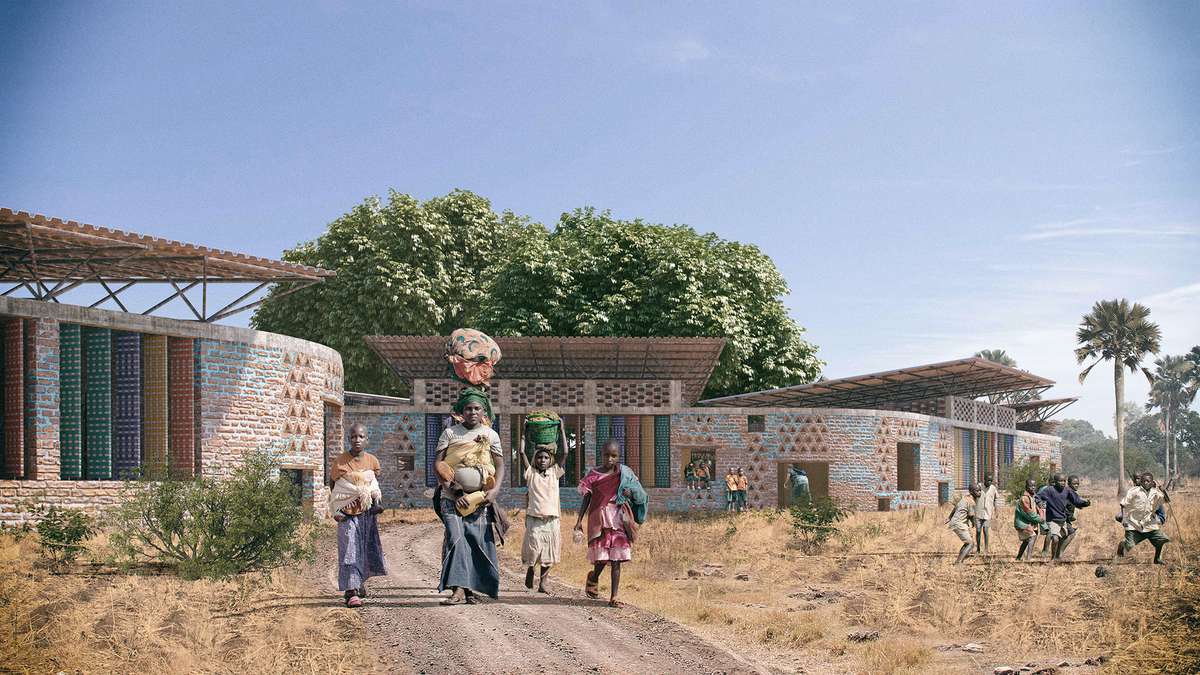
Ulyankulu Wayair school has been under development for the last three years. It's an attempt of adressign very specific issues that the community of this and many other refugee settlements are or will be facing. First of all the school has a strong emotional gravitas as a forward looking object, built by local people cementing the permanence of their settlement. Ulyankulu is transforming from the three decade long uncertainty of being a temporary home, into a place where the future can be built.
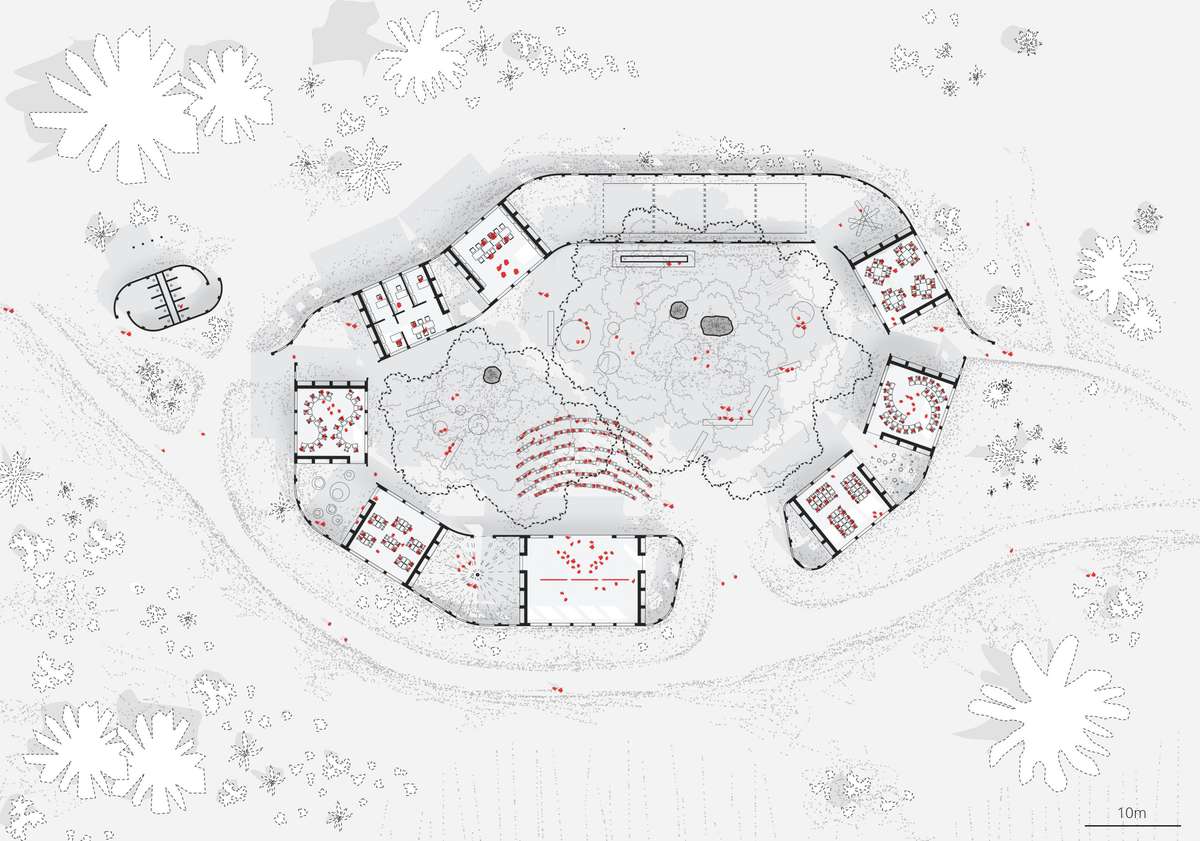
Spatially the project is looking to redevelop the relation between human and nature which despite very deep and positive cultural heritage of respect got undercut by decades of hardship which shifted the perspective on nature as merely a resource. Furthermore an attempt of shifting away from outdated prussian style education is being addressed by adaptation of democratic educational methods to the local cultural context and preparation of local teaching stuff for its implementation.
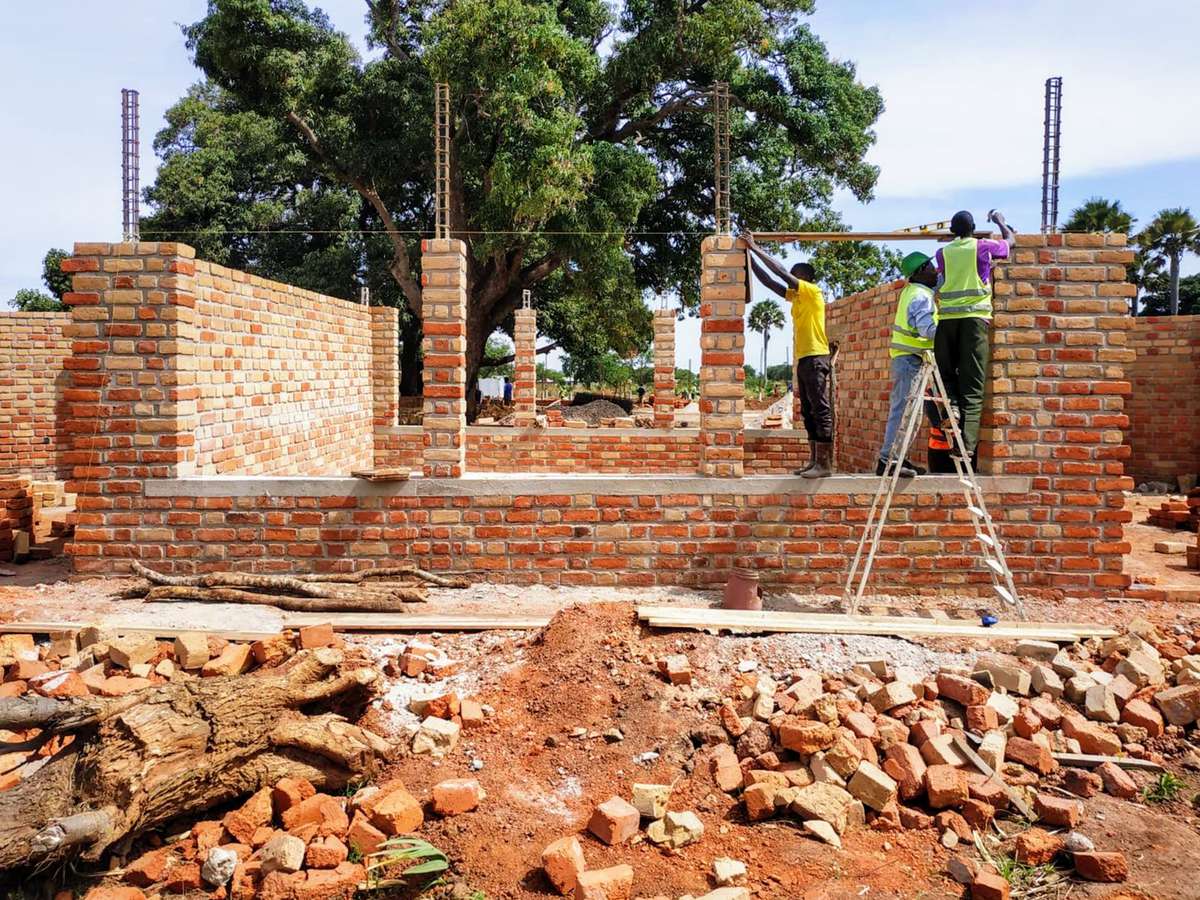
Commonly built schools in the area offer either flat, hot open outdoor or typical overheated interior. Wayair Ulyankulu school challenges that with a fluid system of class rooms, patios and the central courtyard shaded by the mango canopy to enreach the schools spatial diversity, believing that different spaces promote different social interactions. Moreover each patio will be given a playful activity turning the school into a continuous playground interrupted by standardized classrooms.
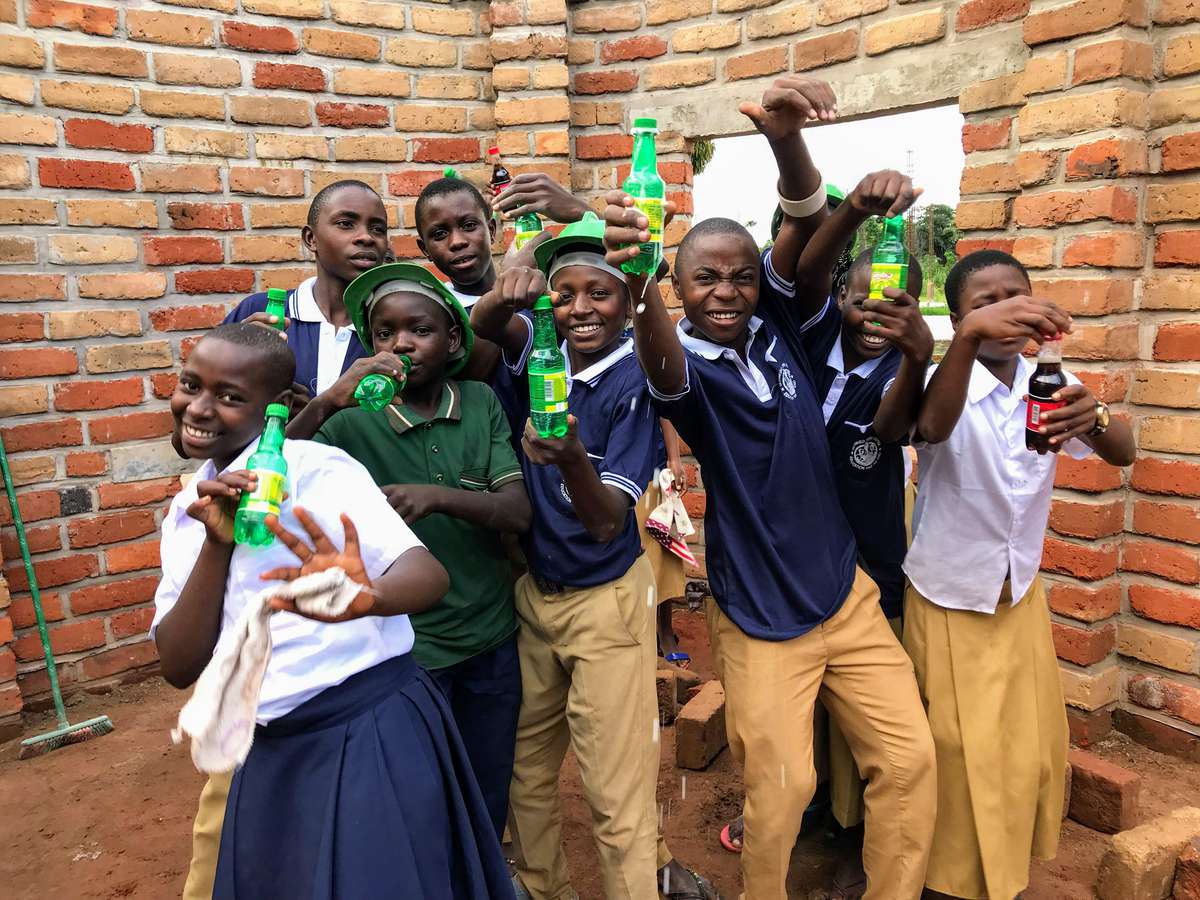
Classroom placement, big windows, thick floor slab and roof structure promote passive cooling by dragging the cold air from underneath the mango trees into clasrooms continuously throughout the day.
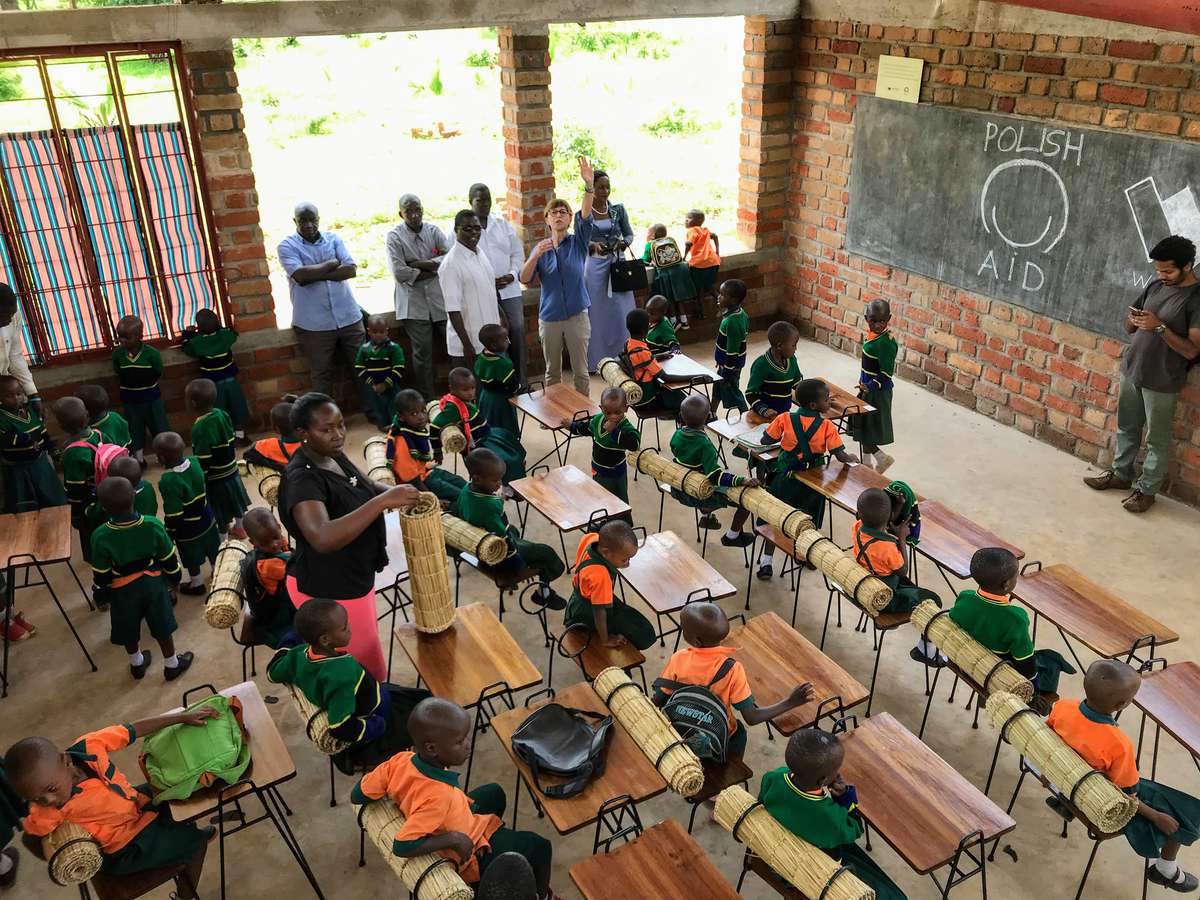
Hopefully both the central courtyard and patios, built with on-site fired bricks and utilizing local aesthetical elements will grow to be used by the community of ulyankulu as a whole for gatherings, celebrations and play.
Ulyankulu Pre- and Primary School
Ulyankulu Pre- and Primary School

- Site-specific cases
Refugee society evolving in a tangible risk of being moved grows their roots shallow. This project alongside purely educational needs is trying to address a greater task that architecture can be a tool for - reassuring the local people of their belonging and foremost making them proud of living here.
We attempted to create an enclosure that is both generous and diverse, in order to inspire uses and interactions. The project serves as a shared space for both education and public events within the local community.
Organizing space around mango trees tries to strengthen the way the children think and feel about their environment drawing on tree symbolism in order to connect people to their cultural heritage. These customs used to play an integral part in the life of regional communities.
This model of space-creation for education and social activities could potentially prove effective in many other places of a similar cultural, political and climatic character.
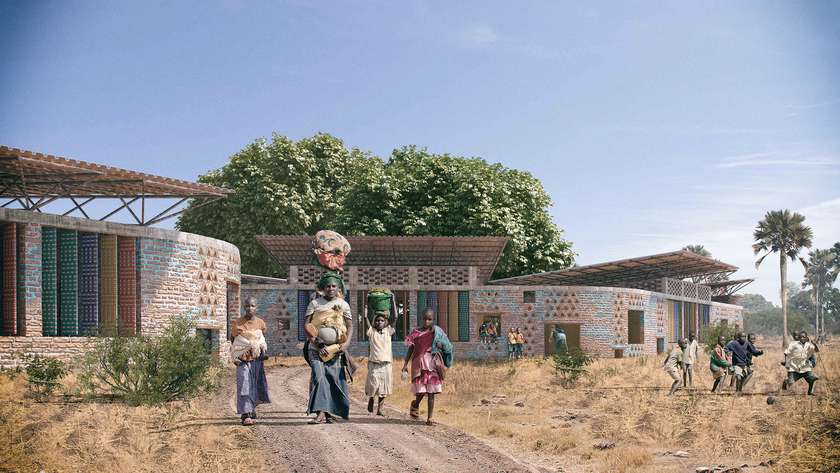
Ulyankulu Wayair school has been under development for the last three years. It's an attempt of adressign very specific issues that the community of this and many other refugee settlements are or will be facing. First of all the school has a strong emotional gravitas as a forward looking object, built by local people cementing the permanence of their settlement. Ulyankulu is transforming from the three decade long uncertainty of being a temporary home, into a place where the future can be built.
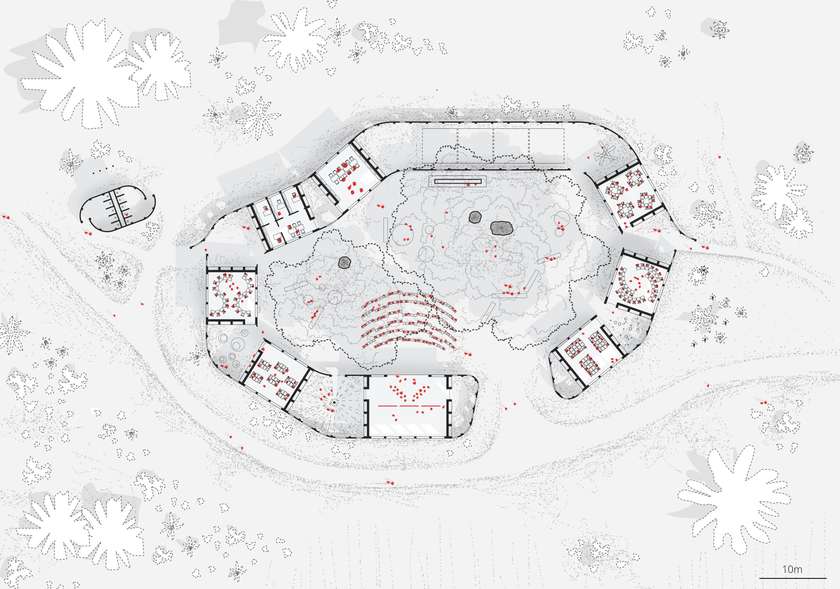
Spatially the project is looking to redevelop the relation between human and nature which despite very deep and positive cultural heritage of respect got undercut by decades of hardship which shifted the perspective on nature as merely a resource. Furthermore an attempt of shifting away from outdated prussian style education is being addressed by adaptation of democratic educational methods to the local cultural context and preparation of local teaching stuff for its implementation.
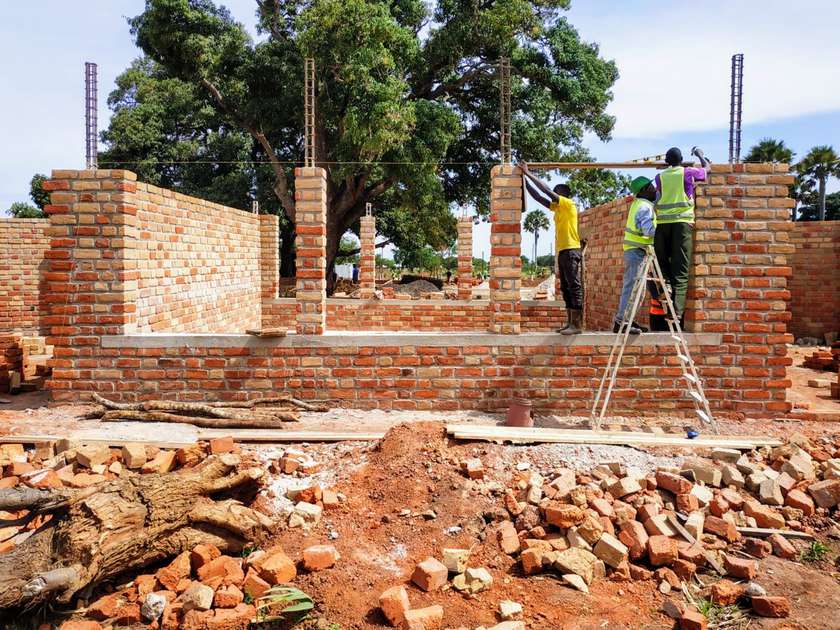
Commonly built schools in the area offer either flat, hot open outdoor or typical overheated interior. Wayair Ulyankulu school challenges that with a fluid system of class rooms, patios and the central courtyard shaded by the mango canopy to enreach the schools spatial diversity, believing that different spaces promote different social interactions. Moreover each patio will be given a playful activity turning the school into a continuous playground interrupted by standardized classrooms.
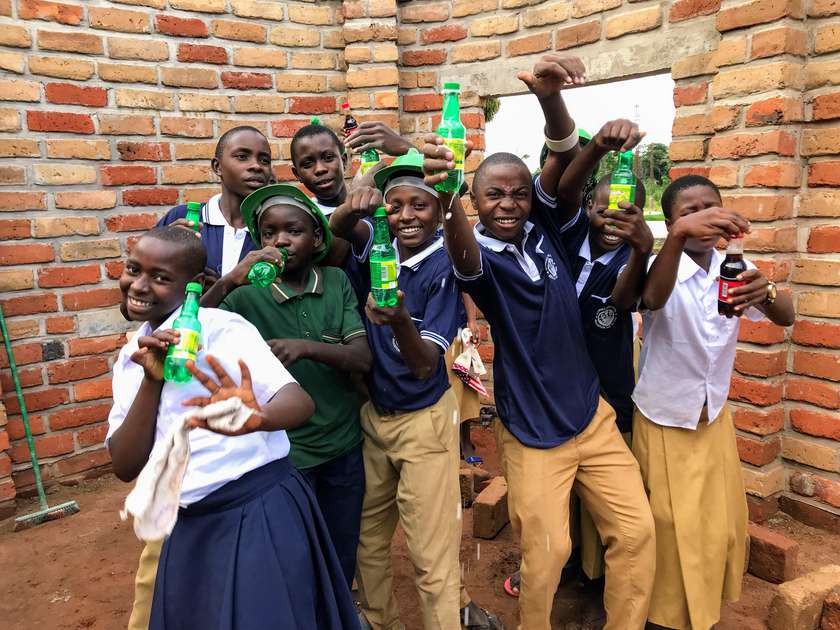
Classroom placement, big windows, thick floor slab and roof structure promote passive cooling by dragging the cold air from underneath the mango trees into clasrooms continuously throughout the day.
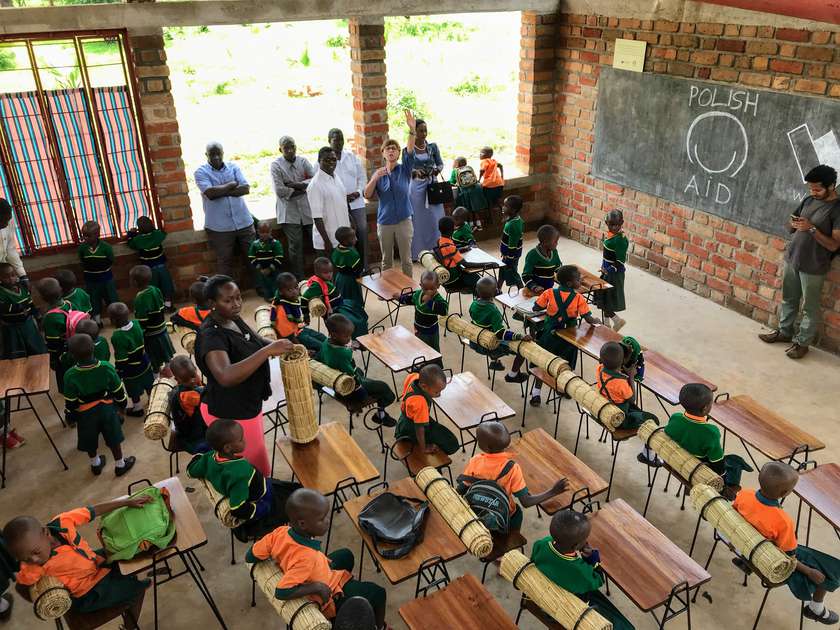
Hopefully both the central courtyard and patios, built with on-site fired bricks and utilizing local aesthetical elements will grow to be used by the community of ulyankulu as a whole for gatherings, celebrations and play.